#narrative *
Text
So I just rewatched the end of Daughters of the Crown (episode 14 of Neverafter, this one) because I was thinking it was a bit rushed (at least compared to how long the very femslashy part of my brain wanted it to be), and what's going on is that Brennan was clearly planning on ending the episode during the hug. But Siobhan stopped him. And if he had ended on the hug then the entire mood of that ending would have been different (and it definitely would have seemed longer and more meaningful).
And I think Siobhan was absolutely right to keep things going and end it where she did, if that's where Rosamund is at that point, because it wouldn't work well to begin the next episode with that conversation - it would very much step on the mood. And this way she didn't let that mood build up to the point where it would be misleading.
I haven't actually watched the next episode yet, so all I know is the preview, but it very much looks like that's what's going on, anyway. So it's interesting seeing the two narrative options there so clearly, and the choice between them. Because with Brennan's ending the perceived sympathies going into the next episode would be very different, either for the party/narrative as a whole or for just Rosamund. And with this ending we know exactly which side they're on, and that there's not going to be any intra-party conflict over this.
#stoned litcrit with vi#pretty sure spoiler avoidance has made this incomprehensible if the weed didn't get there first#dimension 20#neverafter#litcrit#writing#narrative#improv#brennan lee mulligan#siobhan thompson
23 notes
·
View notes
Text
Writing Tips Master Post
Character writing/development:
Character Arcs
Making Character Profiles
Character Development
Comic Relief Arc
Internal Conflict
Creating Distinct Characters
Suicidal Urges/Martyr Complex
Creating Likeable Characters
Writing Strong Female Characters
Writing POC Characters
Character Voices
Plot devices/development:
Intrigue in Storytelling
Enemies to Lovers
Alternatives to Killing Characters
Worldbuilding
Misdirection
Consider Before Killing Characters
Foreshadowing
Narrative:
Emphasising the Stakes
Avoid Info-Dumping
Writing Without Dialogue
1st vs. 2nd vs. 3rd Perspective
Fight Scenes (+ More)
Transitions
Pacing
Writing Prologues
Dialogue Tips
Writing War
Writing Cheating
Worldbuilding:
Worldbuilding: Questions to Consider
Creating Laws/Rules in Fantasy Worlds
Book writing:
Connected vs. Stand-Alone Series
A & B Stories
Writer resources:
Writing YouTube Channels, Podcasts, & Blogs
Online Writing Resources
Outlining/Writing/Editing Software
Writer help:
Losing Passion/Burnout
Overcoming Writer's Block
Fantasy terms:
How To Name Fantasy Races (Step-by-Step)
Naming Elemental Races
Naming Fire-Related Races
Ask games:
Character Ask Game #1
Character Ask Game #2
Character Ask Game #3
Miscellaneous:
1000 Follower Special
Writing Fantasy
#masterlist#masterpost#writeblr#writing#writing tips#writing advice#writing help#writing resources#author resources#writer resources#creative writing#character writing#character development#plot development#narrative#book writing#writers block#writer stuff#writer things#fantasy writing#writer ask game#deception-united
11K notes
·
View notes
Text
yes yes characters doomed by the narrative always slap BUT what about characters saved by the narrative? characters who have already given up hope and don't know they have a happy ending? characters who believe they are a lost cause, characters who feel irredeemable, characters who think there's nothing left for them, but the narrative does provide a way out? what about the characters who don't expect anything good, who don't even remember how to wish for it anymore, who get the things they need anyway? what about the characters who actively run from being saved getting saved in a way they can't stop or control. what about being saved by the narrative!!!
#this is inspired by joy from eeaao#but feel free to blorbo it up#judas talks#doomed by the narrative#saved by the narrative#fate#narrative#on writing#on healing#on hope
23K notes
·
View notes
Text
It's always risky killing off a character but if you have to, you must have them HAUNT the narrative. Let their death and absence be constantly felt at some level.
#writing advice#creative writing#writing process#writing#writers#writers on tumblr#writeblr#character death#narrative#character writing
6K notes
·
View notes
Text
Against Lore

For the rest of May, my bestselling solarpunk utopian novel THE LOST CAUSE (2023) is available as a $2.99, DRM-free ebook!

One of my favorite nuggets of writing advice comes from James D Macdonald. Jim, a Navy vet with an encylopedic knowledge of gun lore, explained to a group of non-gun people how to write guns without getting derided by other gun people: "just add the word 'modified.'"
As in, "Her modified AR-15 kicked against her shoulder as she squeezed the trigger, but she held it steady on the car door, watching it disintegrate in a spatter of bullet-holes."
Jim's big idea was that gun people couldn't help but chew away at the verisimilitude of your fictional guns, their brains would automatically latch onto them and try to find the errors. But the word "modified" hijacked that impulse and turned it to the writer's advantage: a gun person's imagination gnaws at that word "modified," spinning up the cleverest possible explanation for how the gun in question could behave as depicted.
In other words, the gun person's impulse to one-up the writer by demonstrating their superior knowledge becomes an impulse to impart that superior knowledge to the writer. "Modified" puts the expert and the bullshitter on the same team, and conscripts the expert into fleshing out the bullshitter's lies.
Yes, writing is lying. Storytelling is genuinely weird. A storyteller who has successfully captured the audience has done so by convincing their hindbrains to care about the tribulations of imaginary people. These are people whose suffering, by definition, do not matter. Imaginary things didn't happen, so they can't matter. The deaths of Romeo and Juliet were less tragic than the death of the yogurt you had for breakfast. That yogurt was alive and now it's dead, whereas R&J never lived, never died, and don't matter:
https://locusmag.com/2014/11/cory-doctorow-stories-are-a-fuggly-hack/
Hijacking a stranger's empathic response is intrinsically adversarial. While storytelling is a benign activity, its underlying mechanic is extremely dangerous. Getting us to care about things that don't matter is how novels and movies work, but it's also how cults and cons work.
Cult leaders and con-artists know that they're engaged in mind-to-mind combat, and they make liberal use of Jim's hack of leaving blank spots for the mark to fill in. Think of Qanon drops: the mystical nonsense was just close enough to sensical that a vulnerable audience was compelled to try and untangle them, and ended up imparting more meaning to them than the hustler who posted them ever could have dreamt up.
Same with cons – there's a great scene in the Leverage: Redemption heist show where an experienced con-artist explains to a novice that the most convincing hustle is the one where you wait for the mark to tell you what they think you're doing, then run with it (scambaiters and other skeptics will recognize this as a relative of the "cold reading," where a "psychic" uses your own confirmations to flesh out their predictions).
As Douglas Adams put it:
A towel has immense psychological value. For some reason, if a strag (strag: non-hitch hiker) discovers that a hitch hiker has his towel with him, he will automatically assume that he is also in possession of a toothbrush, face flannel, soap, tin of biscuits, flask, compass, map, ball of string, gnat spray, wet weather gear, space suit etc., etc. Furthermore, the strag will then happily lend the hitch hiker any of these or a dozen other items that the hitch hiker might accidentally have "lost". What the strag will think is that any man who can hitch the length and breadth of the galaxy, rough it, slum it, struggle against terrible odds, win through, and still knows where his towel is is clearly a man to be reckoned with.
Magicians know this one, too. The point of a sleight is to misdirect the audience's attention, and use that moment of misattention to trick them, vanishing, stashing or producing something. The mark's mind is caught in a pleasurable agony: something seemingly impossible just happened. The mind splits into two parts, one of which insists that the impossible just happened, the other insisting that the impossible can't happen.
You know you've done it right if the audience says, "Do that again!" And that's the one thing you must not do. So long as you don't repeat the trick, the audience's imagination will chew on it endlessly, coming up with incredibly clever things that you must have done (a clever conjurer will know several ways to produce the same effect and will "do it again" by reproducing the effect via different means, which exponentially increases the audience's automatic imputation of clever methods to the performer).
Not for nothing, Jim Macdonald advises his writing students to study Magic and Showmanship, a classic text for aspiring conjurers:
https://memex.craphound.com/2007/11/13/magic-and-showmanship-classic-book-about-conjuring-has-many-lessons-for-writers/
There's a version of this in comedy, too. The scholarship of humor is clear on this: comedy comes from surprise. The audience knows they're about to be surprised when the punchline lands, and their mind is furiously trying to defuse the comedian's bomb before it detonates, cycling through potential punchlines of their own. This ramps up the suspense and the tension, so when the comedian does drop the punchline, the tension is released in a whoosh of laughter.
Your mind wants the tension to be resolved ASAP, but the pleasure comes from having that desire thwarted. Comedy – like most performance – has an element of authoritarianism. You don't give the audience what it wants, you give it what it needs.
Same goes for TTRPGs: the game master's role is to deny the players the victories and treasure they want, until they can't take it anymore, and then deliver it. That's the definition of an epic game. It's one of the durable advantages of human GMs over video game back-ends: they can ramp up the epicness by "cheating" on the play, giving the players the chance to squeak out improbable victories at the last possible second:
https://wilwheaton.typepad.com/wwdnbackup/2009/03/behind-the-screen.html
This is so effective that even crude approximations of it can turn video-games into cult hits – like Left4Dead, whose "Director" back-end would notice when the players were about to get destroyed and then substantially ramped up the chances of finding an amazing weapon – the chance would still be low overall, but there would be enough moments when the player got exactly what they'd been praying for, at the last possible instant, that it would feel amazing:
https://left4dead.fandom.com/wiki/The_Director#Special_Infected
Critically, Left4Dead's Director didn't do this every time. As any showman knows, the key to a great performance is "Always leave 'em wanting more." The musician's successful finale depends on doing every encore the audience demands, except the last one, so the crowd leaves with one tantalyzing and imaginary song playing in their minds, a performance better than any the musicians themselves could have delivered. Like the gun person who comes up with a cooler mod than the writer ever could, like the magic show attendee who comes up with a more elaborate explanation for the sleight than the conjurer could ever pull off, like the comedy club attendee whose imagination anticipates a surprise that grows larger the longer the joke goes on, the successful performance is an adversarial act of cooperation where the audience willingly and unwillingly cooperates with the performer to deny them the thing that they think they need, and deliver the thing they actually need.
This is my biggest problem with the notion that someday LLMs will get good enough at storytelling to give us the tales we demand, without having to suffer through a storyteller's sadistic denial of the resolutions we crave. When I'm reading a mystery, I want to turn to the last page and find out whodunnit, but I know that doing so will ruin the story. Telling the storyteller how the story should go is like trying to tickle yourself.
Like being tickled, experiencing only fun if the tickler respects your boundaries – but, like being tickled, there's always a part where you're squirming away, but you don't want it to stop. An AI storyteller that gives you exactly what you want is like a dungeon master who declares that every sword-swing kills the monster, and every treasure chest is full of epic items and platinum pieces. Yes, that's what you want, but if you get it, what's the point?
Seen in this light, performance is a kind of sado-masochism, where the performer delights in denying something to the audience, who, in turn, delights in the denial. Don't give the audience what they want, give them what they need.
What your audience needs is their own imagination. Decades ago, I was a freelance copywriter producing sales materials for Alias/Wavefront, a then-leading CGI firm that was inventing all kinds of never-seen VFX that would blow people away. One of the engineers I worked with told me something I never forgot: "Your imagination has more polygons than anything you can create with our software." He was talking about why it was critical to have some of the action happen in the shadows.
All of this is why series tend to go downhill. The first volume in any series leaves so much to the imagination. The map of the world is barely fleshed out, the characters' biographies are full of blank spots, the mechanics of the artifacts and the politics of the land are all just detailed enough that your mind automatically ascribes a level of detail to them, without knowing what that detail is.
This is the moment at which everything seems very clever, because your mind is just churning with all the different bits of elaborate lore that will fill in those lacunae and make them all fit together.
SPOILER ALERT: I'm about to give some spoilers for Furiosa.
.
.
.
.
.
.
.
.
FURIOSA SPOILERS AHEAD!
Last night, we went to see Furiosa, the latest Mad Max movie, a prequel to 2015's Fury Road, which is one of the greatest movies ever made. Like most prequels, Furiosa functions as a lore-delivery vehicle, and as such, it's nowhere near as good as Fury Road.
Fury Road hints as so much worldbuilding. We learn about the three fortresses of the wasteland (the Citadel, the Bullet Farm, and Gastown) but we only see one (The Citadel). We learn that these three cities have a symbiotic relationship with one another, defined by a complex politics that is just barely stable. We meet Furiosa herself, and learn something of her biography – that she had been stolen from the Green Place, that she had suffered an arm amputation.
All of this is left for us to fill in, and for a decade, my hindbrain has been chewing on all of that, coming up with cool ways it could all fit together. I yearned to know the "real" explanation, but it was always unlikely that this real explanation would be as enjoyable as my own partial, ever-unfinished headcanon.
Furiosa is a great movie, but its worst parts are the canonical lore it settles. Partly, that's because some of that lore is just stupid. Why is the Bullet Farm an open-pit mine? I mean, it's visually amazing, but what does that have to do with making bullets? Sometimes, it's because the lore is banal – the solarpunk Green Place is a million times less cool than I had imagined it. Sometimes, it's because the lore is banal and stupid: the scenes where Furiosa's arm is crushed, then severed, then replaced, are both rushed and quasi-miraculous:
https://www.themarysue.com/how-does-furiosa-lose-her-arm/
But even if the lore had been good – not stupid, not banal – the best they could have hoped for was for the lore to be tidy. If it were surprising, it would seem contrived. A story whose loose ends have been tidily snipped away seems like it would be immensely satisfying, but it's not satisfying – it's just resolved. Like the band performing every encore you demand, until you no longer want to hear the band anymore – the feeling as you leave the hall isn't satisfaction, it's exhaustion.
So long as some key question remains unresolved, you're still wanting more. So long as the map has blank spots, your hindbrain will impute clever and exciting mysteries, tantalyzingly teetering on the edge of explicability, to the story.
Lore is always better as something to anticipate than it is to receive. The fans demand lore, but it should be doled out sparingly. Always leave 'em wanting more.

If you'd like an essay-formatted version of this post to read or share, here's a link to it on pluralistic.net, my surveillance-free, ad-free, tracker-free blog:
https://pluralistic.net/2024/05/27/cmon-do-it-again/#better_to_remain_silent_and_be_thought_a_fool_than_to_speak_and_remove_all_doubt
#pluralistic#writing#lore#series#science fiction#the elaborations of a bad liar#always leave em wanting more#james d mcdonald#guns#pilkunnussija#craft#Silmarillion#sf#Better to Remain Silent and Be Thought a Fool than to Speak and Remove All Doubt#magic tricks#conjuring#narrative#mad max#furiosa
958 notes
·
View notes
Text
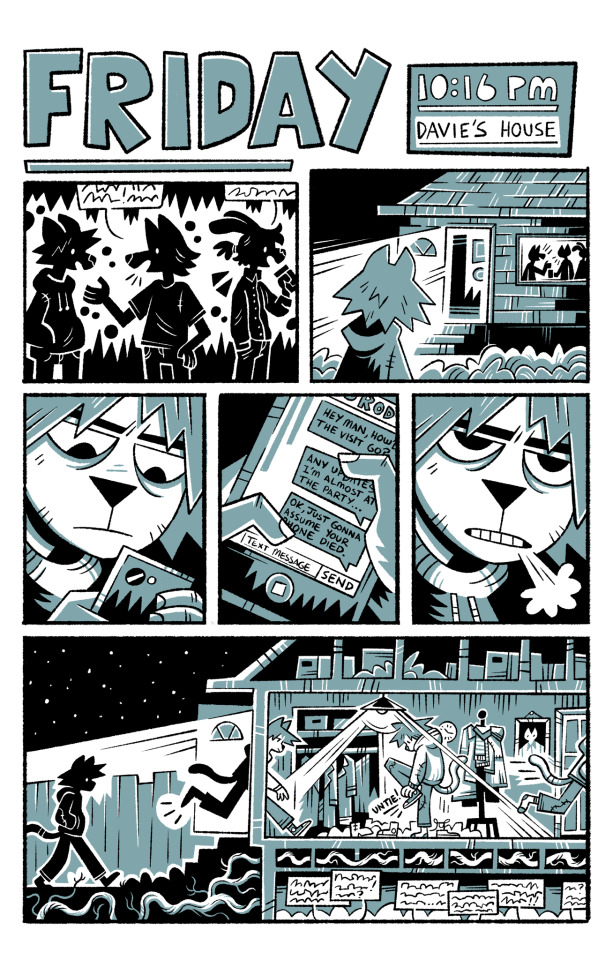
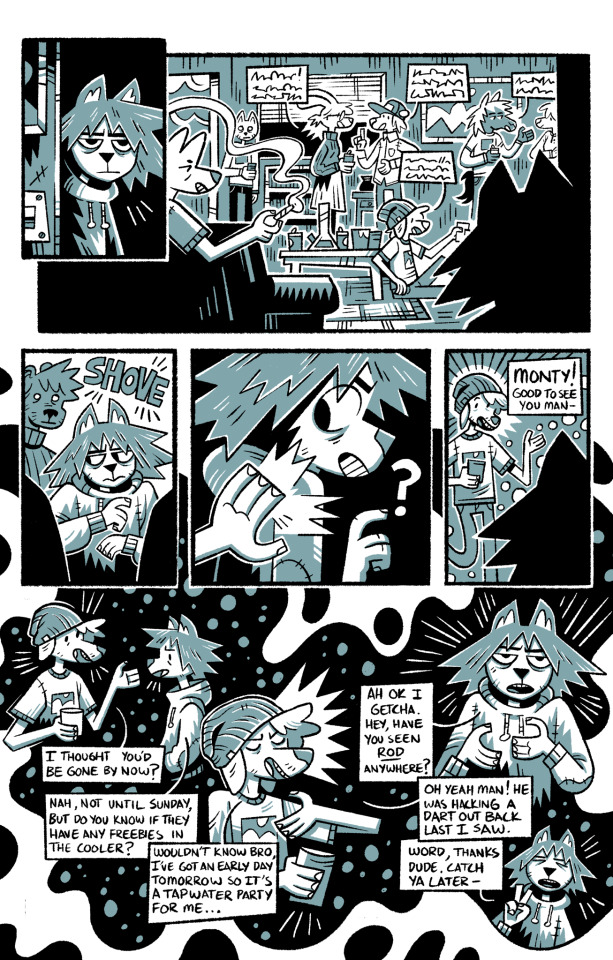
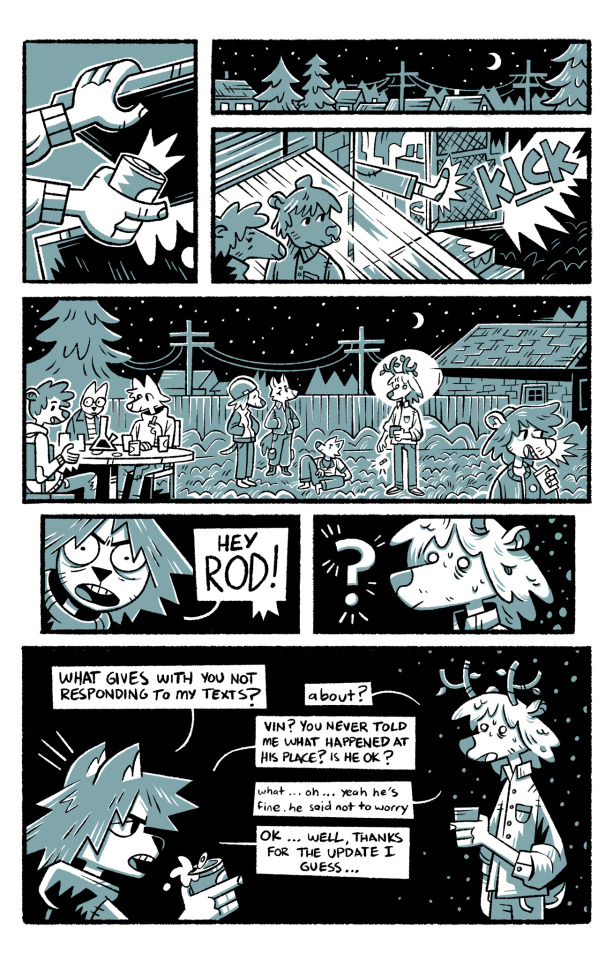

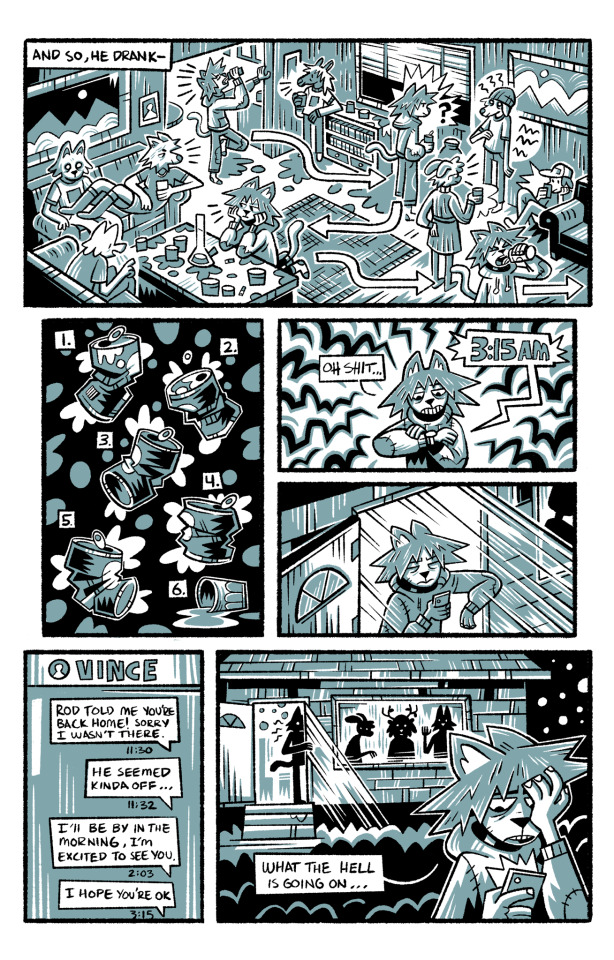
“The Wind Beneath the Aspens”
-5 page pitch created during August of this year
#illustration#sketchbook#anthro#art#drawing#procreate#furry art#furry#sketch#character design#comicart#comics#comic#webcomix#webcomic#narrative#cartoon#drugs cw#alcohol cw
1K notes
·
View notes
Text
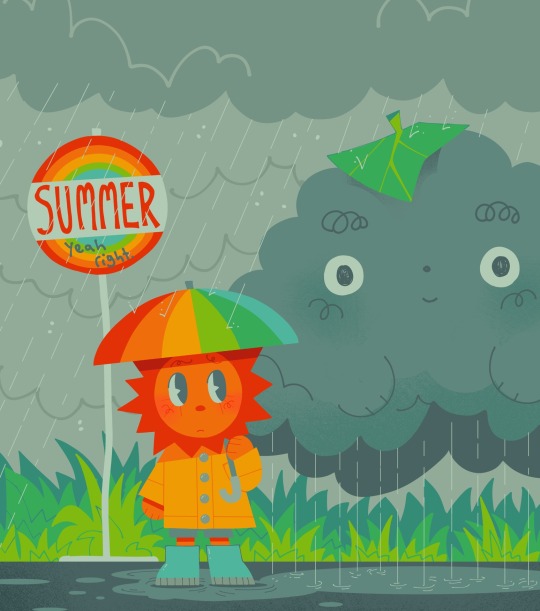
☔️ for my university’s newspaper! nz had a lot of rain last summer… 🌈
800 notes
·
View notes
Text

#iddybittysnail#the stanley parable#tsp#tspud#the stanley parable ultra deluxe#the stanley parable 2#427#employee 427#shit post#meme#the narrator tsp#the narrator#narrator#narratorverse#tsp narrator#narrative#the stanley parable narrator
292 notes
·
View notes
Text
wait you know what's fucked up. this. this metaphor bestowed on Eumaios seeing Telemachos. while the narrative voice leans toward Odysseus's thoughts.

541 notes
·
View notes
Text



Through Metaphorical Illustrations, Owen Gent Unveils Difficult Psychological Experiences
1K notes
·
View notes
Text
The Five Types of Readers That Read Your Fantasy Book (For Writers)

As a fantasy writer, understanding your target audience is crucial for the success of your book. Knowing the different types of readers who are drawn to the genre can help you tailor your writing to their preferences and create a more engaging experience. In this blog post, I'll help you explore the five types of readers that are likely to read your fantasy book and provide insights into their characteristics and expectations.
The Escapist Reader
The first type of reader is the Escapist. These readers are looking for a break from reality and crave immersion in a rich and imaginative world. They are drawn to epic quests, magical creatures, and fantastical settings. As a writer, you can capture their attention by crafting a vivid and detailed world, filled with intricate plotlines and larger-than-life characters. Engaging their sense of wonder and providing an escape from their everyday lives will keep them hooked from the first page to the last.
The World-Builder
The next type of reader is the World-Builder. These readers are fascinated by the intricacies of world-building and the lore that shapes the fantasy realm. They enjoy exploring the history, mythology, and geography of the fictional world you create. To captivate these readers, focus on developing a well-constructed and cohesive world that feels authentic and believable. Pay attention to the small details, establish consistent rules of magic, and provide glimpses into the rich tapestry of your universe.
The Character-Driven Reader
Another important type of reader is the Character-Driven reader. These readers are emotionally invested in the journeys and growth of the characters they encounter. They want to experience the highs and lows alongside the protagonists, forming deep connections with them. To engage these readers, focus on creating well-rounded and relatable characters with compelling arcs. Develop their motivations, flaws, and relationships to evoke empathy and resonate with your audience on a personal level.
The Plot-Oriented Reader
The fourth type of reader is the Plot-Oriented reader. These readers are primarily interested in the twists, turns, and surprises that unfold throughout the story. They enjoy intricate and well-paced plots that keep them guessing. As a writer, you can capture their attention by crafting a narrative with unexpected twists, clever foreshadowing, and satisfying resolutions. Keep the suspense high and deliver a satisfying payoff to keep these readers engaged and coming back for more.
The Theme-Seeker
The final type of reader is the Theme-Seeker. These readers are drawn to the deeper meanings and messages embedded within a story. They enjoy exploring philosophical, moral, or social themes that resonate with them on a personal level. As a writer, you can captivate these readers by weaving thought-provoking themes into your narrative. Explore complex issues, challenge societal norms, and offer unique perspectives to stimulate their intellect and leave a lasting impact.
Conclusion
Understanding the different types of readers that are drawn to your fantasy book can help you tailor your writing to their preferences and create a more immersive experience. Whether you are capturing the attention of Escapist readers, captivating the World-Builders with your intricate lore, evoking emotions in Character-Driven readers, surprising Plot-Oriented readers, or stimulating the intellect of Theme-Seekers, knowing your audience is key. By crafting a story that resonates with these reader types, you increase your chances of creating a loyal fan base and achieving success as a fantasy writer.

Blow your readers mind.
Happy writing!
#thewriteadviceforwriters#writeblr#creative writing#writing#writing tips#on writing#writers block#how to write#writers and poets#writing plot#character building#character creation#writing resource#world building#narrative#novel writing#writing blog#writer#writing community#fantasy novel#fiction#author#self published#novella#self publishing#romance novels#fantasy fiction#fantasy#high fantasy#medieval fantasy
591 notes
·
View notes
Text
Create a monster, and I will show you your reflection
Night has fallen. Lightning crackles in the sky above. It is time for you to create an abomination. But what manner of horror will spring from your hands?
-
I blacked out and made another narrative uquiz. Give it a play, tag what you get!
395 notes
·
View notes
Text
Once more thinking about something that permanently altered my brain's chemistry and the way I see life and I think I should share it here, even if no one is going to see.
In the How to Train Your Dragon book series, there is a scene where Hiccup faces an enemy who owns an axe that has two sides, one that is golden and shiny, the other that is blackened, bloody and rusty. He would throw the axe in the air and make decisions depending on which side it would land on. Said axe eventually is used to decide Hiccup's fate.
However, despite being trapped by the narrative in many ways, Hiccup is the protagonist of his own destiny. He reaches for the axe as it falls, and turns it himself so it lands on the golden side. Whether the axe was going to land on the gold or the dark side originally is irrelevant. He chooses to be alive and be free.
Every time I go through a difficult moment, as I am right now, I think about this scene, as silly as it may be.
I am allowed to grab the destiny axe. And so are you.
#how to train your dragon#hiccup#life advice#axe#destiny#the chariot#literature#book rec#narrative#HTTYD despite being obviously meant for kids has many strong messages#And a very complex narrative about destiny repeating ones mistake and being responsible for your own choices#Everyone should give it a chance honestly#brain chemistry
531 notes
·
View notes
Text
Change the narrative.
Start speaking from the position of your highest self, not as the empty handed beggar looking to obtain what you want, but as an opulent being already having what you desire.
#succulentsiren#opulence#wealth#dark feminine energy#manifest#narrative#shift#winner’s mindset#healthy mindset#divine feminine#affirmations#it girl#itgirl#self confidence#writers and poets#dark femininity#femininity#spellwork#spells#patreon#quotes#winning#success#law of attraction
229 notes
·
View notes
Text
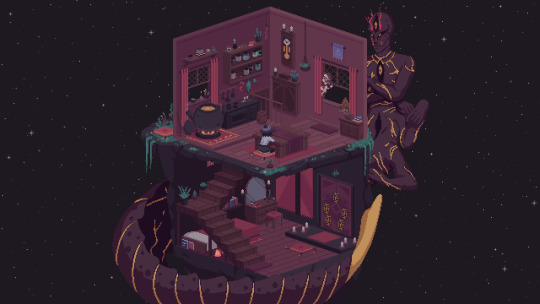
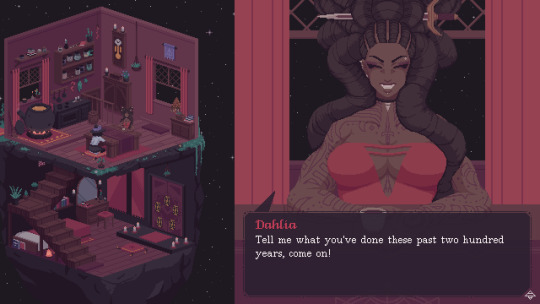
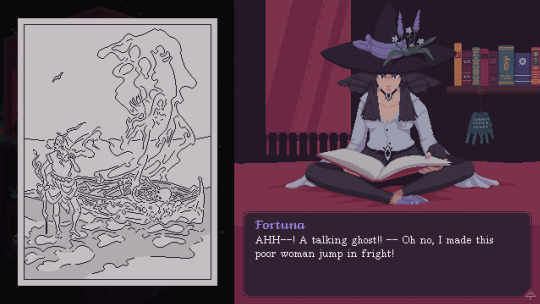
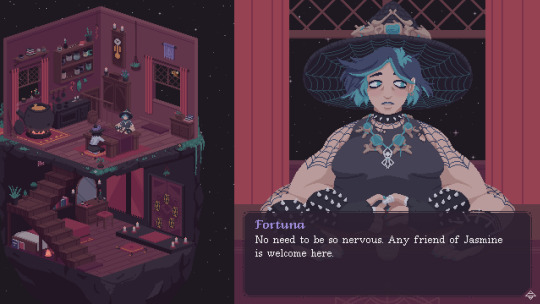
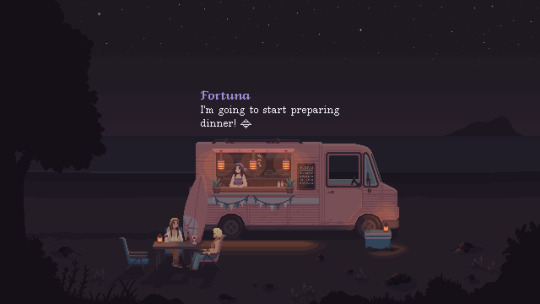
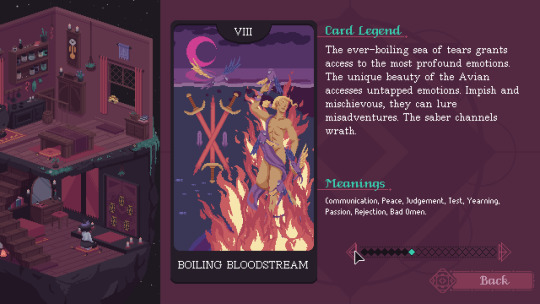
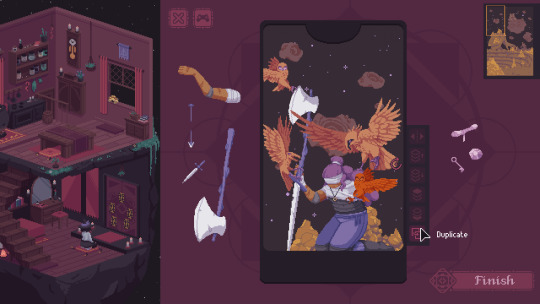

The Cosmic Wheel Sisterhood releases TODAY on PC and Switch!
Please, enjoy out tarot deckbuilding narrative experience about Witches in outer space!
#deconstructeam#indie game#pixel art#gaming#gamedev#narrative#narrative experience#visual novel#witch aesthetic#devolver digital#cosmic wheel sisterhood#witches#tarot art#tarot cards
858 notes
·
View notes
Text
I love you stories that know they are stories, i love you breaking the fourth wall, i love you omniscient narrators, i love you circular storytelling, i love you “maybe it will turn out this time”, i love you stories that end by starting over
#yes this is about hadestown#hadestown#hadestown broadway#anais mitchell#Rachel chavkin#this is a rachel chavin supremacy blog!!!#broadway#musicals#broadway musicals#Greek myths#greek myth aesthetic#narrative
4K notes
·
View notes